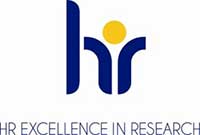Research Culture
Research culture is broadly defined by the Royal Society as the behaviours, values, expectations, attitudes and norms of our research communities. It influences researchers' career paths and determines the way that research is conducted and communicated.

Teesside University is committed to fostering a research culture and environment in which you can thrive as a researcher. To create a positive research culture that values the contributions of all those working within the research ecosystem, we participate in and adhere to a range of national programmes, charters, concordats, and awards.
The Research Culture and People Sub-Committee (RCPSC) leads our work to plan, pilot, and implement initiatives in support of a positive research culture, as captured in our research culture action plan. Through our action plan, we will:
- Make research visible
- Value research
- Ensure our research is inclusive and diverse
- Enable high-quality and impactful research
- Nurture research talent
What's happening at Teesside...
Concordats and agreements to support research culture
Research concordats, agreements, and other initiatives are part of the UK and international landscape of practices that influence research cultures and environments. These initiatives have grown organically, in response to challenges and opportunities, and cover a range of issues to support researchers and their activities. Together, these initiatives create obligations for researchers and their institutions, and other stakeholders, such as research funders.
The University adheres to and implements these initiatives through our policies, processes, action plans and commitments. The list of concordats and agreements grows in response to new challenges and ambitions of the research sector, and includes the following:
- Athena Swan Charter
- Coalition for Advancing Research Assessment (CoARA)
- Concordat for Engaging the Public with Research
- Concordat for the Advancement of Knowledge Exchange in Higher Education
- Concordat for the Environmental Sustainability of Research and Innovation Practice
- Concordat on Open Research Data
- Concordat on Openness on Animal Research
- Concordat to Support Research Integrity
- Guidance for Safeguarding in International Development Research
- Leiden Manifesto on Research Metrics
- Race Equality Charter
- Researcher Development Concordat (see HR Excellence in Research Award)
- San Francisco Declaration on Research Assessment (DORA)
- Technician Commitment
HR Excellence in Research Award
 The University participates in the European Commission's HR in Excellence in Research Award, which is assessed every three years through self-assessment. The award is given to organisations which can demonstrate a robust and public implementation strategy of improving the career development of researchers, as described by the
Researcher Development Concordat. The University was first awarded
HR Excellence in Research in 2013.
The University participates in the European Commission's HR in Excellence in Research Award, which is assessed every three years through self-assessment. The award is given to organisations which can demonstrate a robust and public implementation strategy of improving the career development of researchers, as described by the
Researcher Development Concordat. The University was first awarded
HR Excellence in Research in 2013.
Our award is led by the Research Culture and People Sub-Committee working closely with the ECR Forum. Both groups report directly to Research and Knowledge Exchange Committee. Our 2023-2026 action plan has been developed from our five research culture aims.
2023 Ten-year review
- 2023 Summary Report
- 2023-2026 Action Plan revised May 2024
- 2023-2026 Action Plan
- 2021-2023 Progress on Action Plan
2021 Eight-year review
- 2021 Summary Report
- 2019-2021 Progress on Action Plan
- 2019-2021 Thematic Action Plan
- 2021-2023 Action Plan
2019 Six-year review
2017 Four-year review
The UK process for achieving the HR Excellence in Research Award is managed by Vitae.
More information about the award
Researcher Development Concordat reporting
The University is a signatory to the Researcher Development Concordat. The annual report below outlines our progress and plans mapped to the Concordat obligations. The University fulfils these obligations through our research culture action plan.
Resources
- Supporting a healthy research and innovation culture (UKRI, 2024)
- Research culture uncovered podcast (University of Leeds, 2024)
- Résumé for Research and Innovation (R4RI) guidance (UKRI, 2024)
- Research culture framework (Vitae, 2023)
- Responsibilities of a principal investigator in improving research culture (UKRIO, 2023)
- Research culture and public engagement (NCCPE, 2023)
- A toolkit to support researcher wellbeing (UCL, 2023)
- What researchers think about the culture they work in (Wellcome, 2020)
- Research Culture (The Royal Society, 2018)
- Responsible Research and Innovation Toolkit (RRI Tools, 2016)
- Open research primers (UKRN)
Reading list
- Ahmed S. 2012. On Being Included: Racism and Diversity in Institutional Life. Duke University Press.
- Allen B, Fidderman H. 2019. Your Health at Work: An indispensable guide to physical and mental wellbeing. KoganPage.
- Boynton P. 2020. Being Well in Academia: Ways to Feel Stronger, Safer and More Connected. Routledge.
- Collins. 2000. Black Feminist Thought: Knowledge, Consciousness, and the Politics of Empowerment. Routledge.
- Deathridge J. ed. 2020. Research Culture: A Selection of Articles. eLife. https://elifesciences.org/collections/edf1261b/research-culture-a-selection-of-articles.
- Guccione K, Hutchinson S. 2021. Coaching and Mentoring for Academic Development. Emerald Publishing.
- Jaeger AJ, Dinin AJ. eds. 2018. The Postdoc Landscape: The Invisible Scholars. Academic Press.
- Ritche S. 2020. Science Fictions. Exposing Fraud, Bias, Negligence and Hype in Science. Bodley Head.
- Smith DG. 2015. Diversity's Promise for Higher Education: Making it Work. 2nd Edition. John Hopkins University Press.
- Spina N, Harris J, Bailey S, Mhorag G. 2020. 'Making It' as a Contract Researcher: A Pragmatic Look at Precarious Work. Routledge.
- Wilsdon J et al. 2015. The Metric Tide: Report of the Independent Review of the Role of Metrics in Research Assessment and Management. DOI: 10.13140/RG.2.1.4929.1363.
